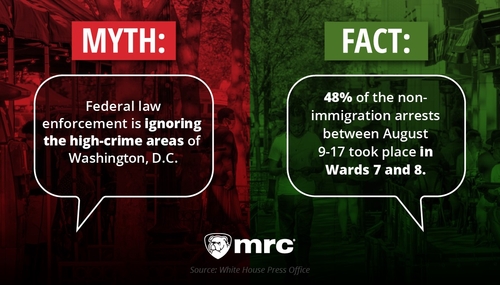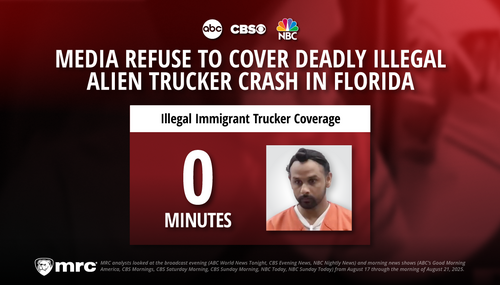
Roberts, who appeared on the ABC program's panel to discuss last week's Fannie Mae meltdown and the government's planned bailout, also asserted a "stark contrast" between the economic advisors of Senators McCain and Barack Obama. She then added that the Democrat's liberal experts reassure her: "I mean, the Obama advisers, with- looking at Bob Rubin and Warren Buffett and Paul Volcker in there, you know, you do feel a sense of security there."
Longtime journalist Sam Donaldson placed blame for the Fannie Mae crisis at the feet of deregulation and singled out former McCain advisor Phil Gramm: "We deregulated in the beginning of '99 and 2000 the banking industry, Phil Gramm and others, I think that Obama ad is correct. He was one of the prime movers. Now we're going to have to clean that up at great expense."
He then derided, "So I mean, I think for John McCain, though, who has the heaviest burden here, since he voted for all the deregulation, for him to now say he would be the toughest re-regulator is kind of a hard thing to swallow."
Of course, both Donaldson and Roberts ignored any role Democrats might have played in the collapse of Fannie Mae. An editorial in the September 17 edition of the Manchester Union Leader explained the part Democrats such as Senator Charles Schumer and Representative Barney Frank played in stymieing oversight:
In 2002, shortly before accounting irregularities were exposed at both companies, Frank said, "I do not regard Fannie Mae and Freddie Mac as problems," The Wall Street Journal reported. After the Freddie Mac accounting scandal in 2003, Frank said, "I do not think we are facing any kind of a crisis."
But there was a crisis, thanks in large part to Frank, Sen. Charles Schumer and others on the leash of these companies. In Congress, they made sure there was no additional oversight, no additional limit on executive behavior and compensation, and no further restraint on the growth of the companies' mortgage-backed-securities portfolios, among other changes.
...
In fact, Frank & Co. made matters worse by pushing Fannie Mae and Freddie Mac to take on greater risk. They wanted more loans to people who might not qualify for traditional bank financing. And, as The Wall Street Journal has pointed out, Frank "pressured regulators to ease up on their capital requirements -- which now means taxpayers will have to make up that capital shortfall."
But, perhaps pointing out these facts wouldn't be as easy and satisfying as calling up frightening images of McCain as Herbert Hoover.
A transcript of the exchange, which occurred at 10:39am on the September 21 edition of "This Week," follows:
SAM DONALDSON: And everyone is now for re-regulation. You know, we deregulated the savings & loan industry. When was that? It began '79, I realize. But Reagan really accelerated it and then we had to clean that up. We deregulated in the beginning of '99 and 2000 the banking industry, Phil Gramm and others, I think that Obama ad is correct. He was one of the prime movers. Now we're going to have to clean that up at great expense. So, I mean, I think for John McCain, though, who has the heaviest burden here, since he voted for all the deregulation, for him to now say he would be the toughest re-regulator is kind of a hard thing to swallow.
COKIE ROBERTS: And he's a Republican and whenever Republicans get into this kind of mess, everybody, even people who were not born or close to being born, the specter of Herbert Hoover comes out to, to haunt them.
GEORGE WILL: I suppose the McCain campaign's hope is that when there's a big crisis, people will go for age and experience. The question is who in this crisis looked more presidential, calm and unflustered? It wasn't John McCain, who, as usual, substituting vehemence for coherence, said let's fire somebody. And he picked one of the most experienced and conservative people in the administration, Chris Cox, and for no apparent reason, or at least none that he would vouched safe, he said fire Chris Cox at this SEC. It was unpresidential behavior by a presidential candidate.
DONALDSON: Well, it was two days after the he said that the fundamentals of the economy were strong. I mean, his talking points have gotten all mixed up. And I think the question of age is back on the table.
...
10:42
DONALDSON: But I do agree that when I say age, I don't know the difference between finding your talking points and not delivering the right ones. We've seen him do this frequently, but this last week was the worst. Between two stops in Florida, as you say, he's had to revise his thinking about what he wanted to say about the economy, wanted to feel the pain suddenly rather than say everything is great.
ROBERTS: And this question of the advisers, even though the ads are ridiculous, the advisers- it is a really stark contrast. I mean, the Obama advisers, with- looking at Bob Rubin and Warren Buffett and Paul Volcker in there, you know, you do feel a sense of security there.




